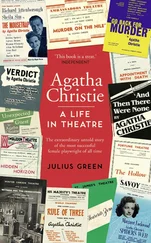Alice Green - Town Life in the Fifteenth Century, Volume 1
Здесь есть возможность читать онлайн «Alice Green - Town Life in the Fifteenth Century, Volume 1» — ознакомительный отрывок электронной книги совершенно бесплатно, а после прочтения отрывка купить полную версию. В некоторых случаях можно слушать аудио, скачать через торрент в формате fb2 и присутствует краткое содержание. Жанр: literature_19, foreign_antique, foreign_prose, Историческая проза, на английском языке. Описание произведения, (предисловие) а так же отзывы посетителей доступны на портале библиотеки ЛибКат.
- Название:Town Life in the Fifteenth Century, Volume 1
- Автор:
- Жанр:
- Год:неизвестен
- ISBN:нет данных
- Рейтинг книги:3 / 5. Голосов: 1
-
Избранное:Добавить в избранное
- Отзывы:
-
Ваша оценка:
- 60
- 1
- 2
- 3
- 4
- 5
Town Life in the Fifteenth Century, Volume 1: краткое содержание, описание и аннотация
Предлагаем к чтению аннотацию, описание, краткое содержание или предисловие (зависит от того, что написал сам автор книги «Town Life in the Fifteenth Century, Volume 1»). Если вы не нашли необходимую информацию о книге — напишите в комментариях, мы постараемся отыскать её.
Town Life in the Fifteenth Century, Volume 1 — читать онлайн ознакомительный отрывок
Ниже представлен текст книги, разбитый по страницам. Система сохранения места последней прочитанной страницы, позволяет с удобством читать онлайн бесплатно книгу «Town Life in the Fifteenth Century, Volume 1», без необходимости каждый раз заново искать на чём Вы остановились. Поставьте закладку, и сможете в любой момент перейти на страницу, на которой закончили чтение.
Интервал:
Закладка:
The question of the Mediterranean was thus vigorously opened. In London, indeed, the Italians might securely reckon on hard treatment. Merchants just beginning to feel their strength, half-ruined Staplers, London shopkeepers and manufacturers, all alike hated their Italian rivals with a common hatred, and were crying out for the most decisive measures against foreign competition. Less careful than their King of nursing political alliances 213 213 For the anxiety as to the friendship of powerful maritime states see the French boast of the alliance of Spain and Genoa; Heralds’ Debate, 59. It is interesting to notice that both Edward the Fourth and Henry the Seventh preferred Florence to Venice. Disputes about the Venetian wool trade under Henry the Sixth are mentioned in Bekynton’s Corresp. i. 126-9.
in view of foreign wars and complications, the traders boldly proposed a bill in the Parliament of 1439 to forbid the Venetians from carrying any wares save those of their own manufacture – a measure which if it had passed would have practically annihilated the whole Venetian trade to England. Their next proposal was a law to forbid selling anything to the Genoese or carrying anything to their port. Steadily supported as the Lombards were by the King against the people, they nevertheless saw their privileges from this time limited step by step; and once after the persecution of 1455 in London even attempted to leave the capital for ever. The great days of their trade monopoly were gone. Edward the Fourth and Richard the Third laid heavy burdens on them. Henry the Seventh kept them dependent on his arbitrary will for a very slight increase of freedom, such as he might see fit to grant from time to time, tried to limit their gains, and in the very first year of his reign forbade them to carry French woad or wine, or silk goods, and further hindered them in the export of wool.
At this time the population of the Venetian Republic was bigger than that of all England, and English traders had a good many other affairs on their hands beside their quarrel with Venice. The dispute, nevertheless, did not languish. No sooner were Henry’s regulations proclaimed in 1485 than English merchants set sail for Crete, bought up the stores of malmsey there, 214 214 The price of wine had been raised in England by new rules about measures.
and carried them off to the Netherlands under the very eyes of the Venetian captains. Venice passed a law against such traffic, and in the stress of anxiety as to the English competition took to building better ships to maintain her own carrying trade; while England retorted by setting up a monopoly of her own wool in revenge for the Venetian monopoly of wine.
Meanwhile, the quick-witted Florentines, driven out of traditional routine by the intensity of the long competition for supremacy, had begun to doubt the value for them of the old policy of naval protection which the city had shared with Venice and Genoa; and had frankly adopted in 1480 a system of free-trade. In Constantinople and Egypt Florence began again to hold her own against Venice and to win back command of Eastern markets, and she eagerly welcomed English wool merchants to her port at Pisa. 215 215 A pilgrim to Rome in 1477 got letters in London on the bank of Jacobo di Medici. (Hist. MSS. Com. vi. 361.)
In 1485, the year when England entered into the lists with Venice, these had become so numerous and powerful a body that a consul was appointed over them; and five years later, Henry made a commercial treaty with Florence which was one of the most remarkable acts of his reign. By its provisions English merchants undertook to carry every year to Florence sufficient wool to supply all the Italian States save Venice, and in return they were given every privilege their hearts desired. 216 216 1. English merchants might trade freely with Florence in all kinds of wares of home or foreign origin. 2. The Florentines promised to buy no wool save from English ships. The English on their side were bound to carry yearly to Pisa an average quantity for all the Italian states save Venice. In Pisa they were to have all the privileges of inhabitants and to have land for a building. 3. The English were to be free from personal services and from taxes which might be raised on trade. 4. The merchants might form a corporation in Pisa. 5. Quarrels between Englishmen to be settled by their own head. Quarrels between an Englishman and a foreigner to be decided by the municipality and the English consul. Criminal cases by the municipality alone. 6. The English to share all advantages the Florentines might win by trading treaties. 7. The wishes of the English to be considered in all new privileges granted in the Florentine dominions. 8. The English King was to allow no stranger to carry wool out of England. The Venetians only might carry 600 sacks. 9. The wool was to be of good quality and well packed. (Schanz, i. 126-137.)
The only resource left to the Venetians was to forbid that any wine should be shipped from Crete to Pisa, so that English vessels which went out laden with wool finding no return cargo should be driven to sail home empty. Henry immediately set such heavy import duties on malmsey in England that the Venetians, seeing their wine-trade on the point of ruin, bowed at last to the inevitable. The victory of the English merchants was finally proclaimed when Henry in 1507 only consented to renew the charter that gave Venetians rights of trade in England on condition that they bound themselves to do no carrying trade between the Netherlands and England, but to leave that to the Merchant Adventurers. 217 217 Schanz, i. 119-142; 7 Henry VII. c. 7.
Meanwhile, in all the ports visited by English ships between the Mediterranean and the Channel the same buoyant spirit of successful enterprise vanquished every obstacle. Englishmen had always traded much with their fellow-subjects in Aquitaine. From the days of St. Thomas Canterbury had dealings with the wine-growers of the south. 218 218 An interesting account of this is given in Hist. MSS. Com. v. 461.
Ships of Bordeaux were known in every port of the Channel, and in 1350, 141 vessels laden with wine sailed thence to London alone, 219 219 Schanz, i. 298.
while the early wealth of Bristol had been created by the cargoes of wool carried from its port to feed the Gascon manufactories, and the casks of wine sent back to fill its cellars. Conditions so pleasant for the Bristol burghers were rudely changed when in 1445 Bordeaux fell into the hands of the French, and English traders instead of being the masters had to go humbly at the bidding of the men of Bordeaux with a red cross on their backs, doing business only in the town, or going into the country under the guardianship of a police agent. But if the burghers of the later fifteenth century cared nothing for the re-conquest of the French provinces, on the other hand they were determined not to lose their trade. The wool dealers, shut out of Bordeaux, turned to the North, to Rouen and Calais, changed their wool there for the wine of Niederburgund, and so started the woollen manufactures of Normandy, while those of Bordeaux declined. By a succession of commercial treaties 220 220 In 1475, 1486, and 1495. (Schanz, i. 299-304.) In 1475 a proclamation in Cinque Ports forbade Englishmen to buy Gascon wine of an alien. (Hist. MSS. Com. v. 494.)
and by the Navigation Act of 1489, which shut out Gascon ships from the English wine trade, Henry secured for English merchants in Bordeaux such adequate protection that the efforts of Louis the Twelfth to limit their freedom of trade by passing a Navigation Act of his own were utterly vain. The Bordeaux citizens, filled with impotent rage, watched the English traders going up and down the land, 6,000 to 8,000 of them, as they averred, armed with sticks, and scouring the country for wine.
Интервал:
Закладка:
Похожие книги на «Town Life in the Fifteenth Century, Volume 1»
Представляем Вашему вниманию похожие книги на «Town Life in the Fifteenth Century, Volume 1» списком для выбора. Мы отобрали схожую по названию и смыслу литературу в надежде предоставить читателям больше вариантов отыскать новые, интересные, ещё непрочитанные произведения.
Обсуждение, отзывы о книге «Town Life in the Fifteenth Century, Volume 1» и просто собственные мнения читателей. Оставьте ваши комментарии, напишите, что Вы думаете о произведении, его смысле или главных героях. Укажите что конкретно понравилось, а что нет, и почему Вы так считаете.












